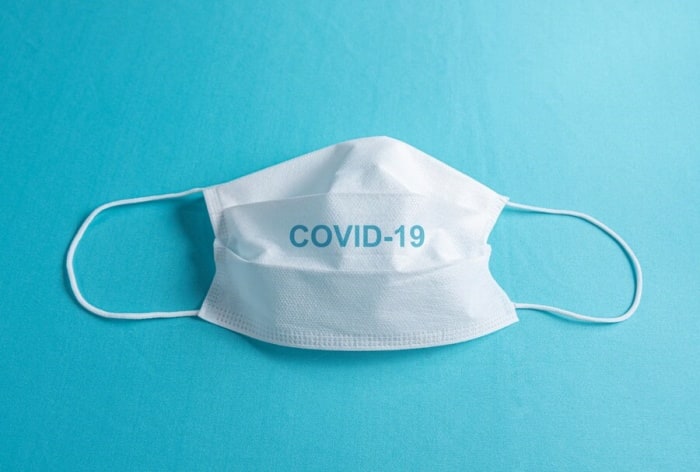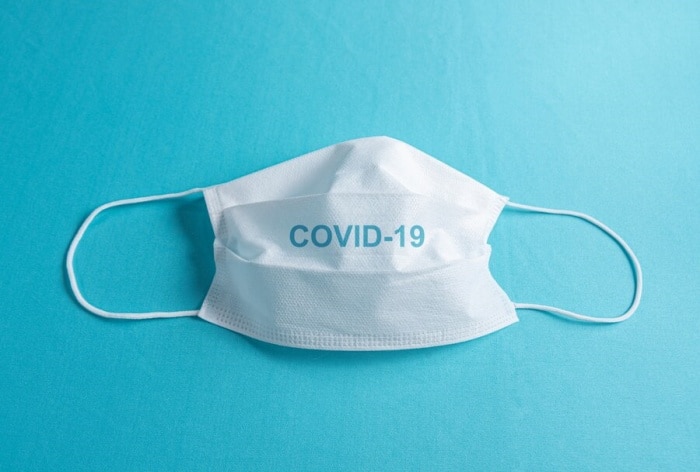After Kerala, the new Covid variant as now been detected in Maharashtra as well. Here are few precautions to be mindful of specially in the winter season.

The first case of the new Covid variant -JN.1- was detected in Kerala, in India. Now, another has been registered in Maharashtra where a 41-year-old man has been found Covid positive. “A 41-year-old male from Sindhudurg district has been detected with JN.1 subvariant. However patient is under observation and we are tracing his close contacts. Meanwhile, we also urged citizens to wear mask and follow covid appropriate behaviour,” said Dr Pratapsinh Sarnikar, Joint Director, Directorate of Health Service, Maharashtra.
There has been a surge in respiratory illness across the globe and in between, this new sub-variant of coronavirus was detected. The World Health Organisation (WHO) has classified JN.1 as a separate “variant of interest”, given its rapidly increasing spread but said it poses a “low” global public health risk.
However, it does not mean that we should not be vigilant and up our health guards. During winters, asthma and other respiratory illnesses may rise. Therefore, here are few precautions that one must be mindful of during the colder months for Covid.
NEW COVID VARIANT JN.1- 5 PRECAUTIONS TO TAKE
- Wear Masks: Masks are an effective tool in reducing the spread of COVID-19. Wear a well-fitting mask that covers your nose and mouth when you’re in public spaces, especially indoors or when physical distancing is challenging. Opt for masks that offer sufficient filtration, such as surgical masks or masks with multiple layers of tightly woven fabric.
- Practice Good Hand Hygiene: Proper hand hygiene is crucial in preventing the transmission of the virus. Wash your hands frequently with soap and water for at least 20 seconds, especially after being in public places, touching surfaces, or before eating. If soap and water are not available, use hand sanitiser with at least 60% alcohol.
- Maintain Physical Distancing: Practice social distancing by keeping a safe distance of at least 1 meter (3 feet) from others, particularly in crowded areas or when you are interacting with people outside your household. Avoid large gatherings and consider virtual alternatives for socialising.
- Deep Breathing Exercises: To increase lung capacity and keep the body fit, practise deep breathing exercises. It helps to strengthen the lungs and respiratory system. Also, indulge in at least 15-20 minutes of exercise or yoga to boost immunity and stamina.
- Get Vaccinated and Follow Public Health Guidelines: COVID-19 vaccination is a crucial step in protecting yourself and others. Stay updated on the latest vaccination guidelines and eligibility criteria in your area and get vaccinated as soon as you are eligible. Additionally, follow the guidelines and recommendations provided by public health authorities and local government.
- Boost Your Immune System: A strong immune system can help protect you from infections. Maintain a healthy lifestyle by eating a balanced diet rich in fruits, vegetables, whole grains, and lean proteins. Stay physically active, get enough sleep, manage stress, and consider taking vitamin supplements if recommended by a healthcare professional.
Indoor spaces with poor ventilation increase the risk of Covid-19 transmission. When indoors, open windows or use air purifiers to improve air circulation and filtration. Proper ventilation helps dilute and remove respiratory droplets that may contain the virus.
These precautions are important not only for protecting yourself but also for safeguarding vulnerable individuals and preventing the spread of Covid-19 in your community. Stay informed about the latest updates and recommendations from reputable health organizations and adapt your precautions accordingly.
NEW COVID VARIANT IN INDIA
Union Health Minister Mansukh Mandaviya on Wednesday reviewed the preparedness of health facilities across the country and stressed on being alert against emerging strains. The variant was previously classified as a variant of interest as part of the BA.2.86 sub-lineages, the parent lineage that is classified as a VOI, the world body said on Tuesday.
However, in recent weeks, JN.1 cases continued to be reported in multiple countries and its prevalence has rapidly increased globally. During the winter season, when respiratory infections like Covid-19 are more prevalent, it’s important to take extra precautions to protect yourself and others.

